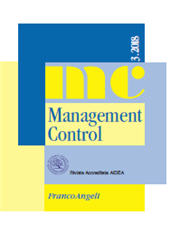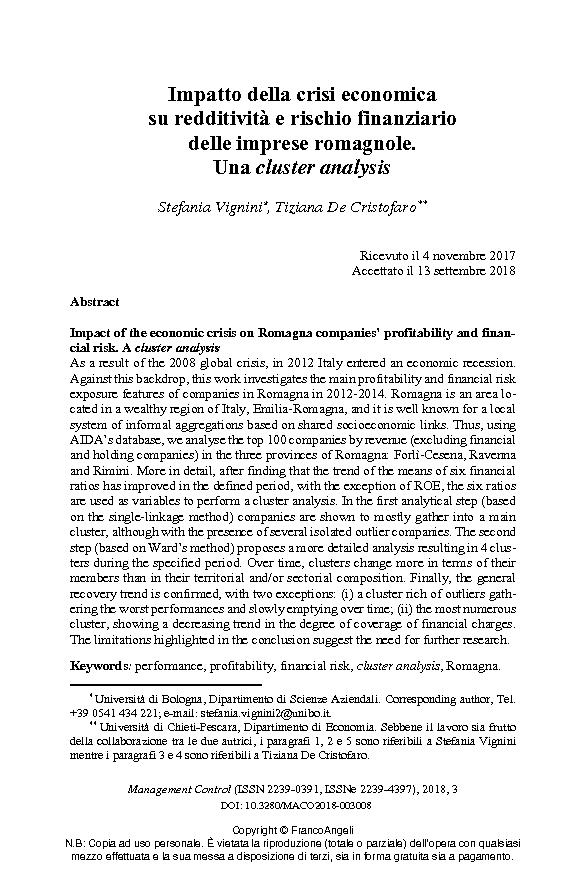Impatto della crisi economica su redditività e rischio finanziario delle imprese romagnole : una cluster analysis
157-181 p.
As a result of the 2008 global crisis, in 2012 Italy entered an economic recession. Against this backdrop, this work investigates the main profitability and financial risk exposure features of companies in Romagna in 2012-2014. Romagna is an area located in a wealthy region of Italy, Emilia-Romagna, and it is well known for a local system of informal aggregations based on shared socioeconomic links. Thus, using AIDA's database, we analyse the top 100 companies by revenue (excluding financial and holding companies) in the three provinces of Romagna: Forlì-Cesena, Ravenna and Rimini. More in detail, after finding that the trend of the means of six financial ratios has improved in the defined period, with the exception of ROE, the six ratios are used as variables to perform a cluster analysis. In the first analytical step (based on the single-linkage method) companies are shown to mostly gather into a main cluster, although with the presence of several isolated outlier companies.
The second step (based on Ward's method) proposes a more detailed analysis resulting in 4 clusters during the specified period. Over time, clusters change more in terms of their members than in their territorial and/or sectorial composition. Finally, the general recovery trend is confirmed, with two exceptions: (i) a cluster rich of outliers gathering the worst performances and slowly emptying over time; (ii) the most numerous cluster, showing a decreasing trend in the degree of coverage of financial charges. The limitations highlighted in the conclusion suggest the need for further research. [Publisher's text].
Fa parte di
Management Control : 3, 2018-
Articoli dello stesso fascicolo (disponibili singolarmente)
-
Informazioni
Codice DOI: 10.3280/MACO2018-003008
ISSN: 2239-4397
PAROLE CHIAVE
- Performance, profitability, financial risk, cluster analysis, Romagna



